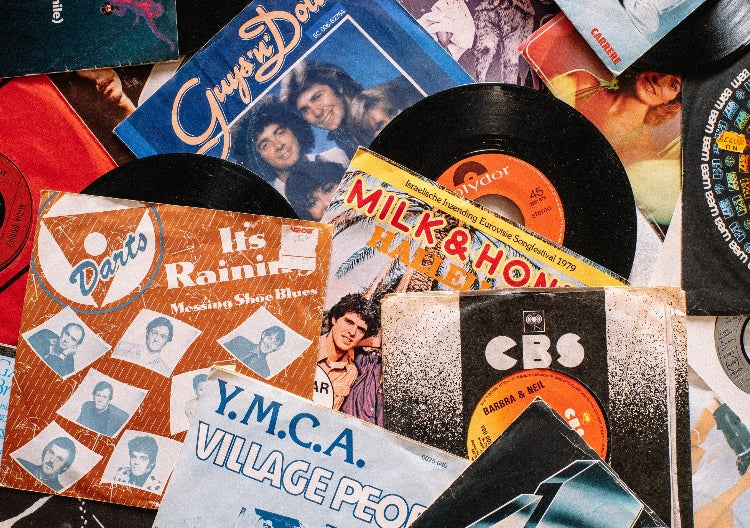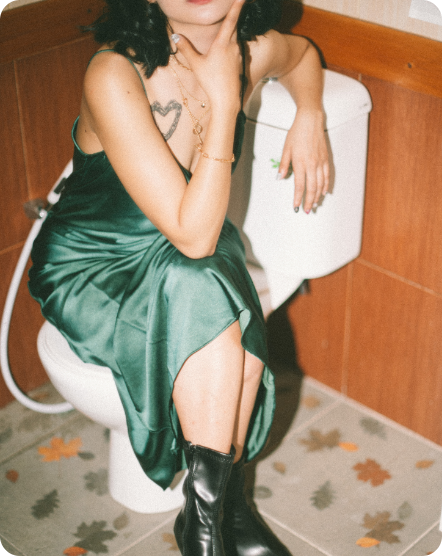Debunking the Stigma: Why Periods Aren’t Unclean

Category
news
Introduction
For centuries, menstruation has been shrouded in stigma, myths, and misconceptions—one of the most damaging being that periods are “unclean” or “impure.” These ideas, deeply ingrained in cultural and societal beliefs, have contributed to the shame and silence surrounding menstrual health. But here’s the truth: periods are a natural, biological process essential to women’s health and should not be a source of embarrassment.
In this post, we’ll break down the misconceptions that have long cast periods in a negative light and discuss why it’s time to embrace menstrual health without shame or stigma.
The Origins of the “Unclean” Myth
The notion that menstruation is “unclean” has its roots in ancient traditions. Across many cultures, menstruating women were considered impure, leading to restrictions on their participation in religious rituals, family life, and public spaces. This belief, passed down through generations, has led to widespread misinformation about menstruation.
-
Religious and Cultural Taboo: In some societies, menstruating women were (and still are) forbidden from entering religious temples or participating in sacred ceremonies. Such practices have contributed to the widespread belief that periods are dirty or contaminating.
- Social Exclusion: Historically, women on their periods were often isolated, either in their homes or in separate spaces. This social exclusion reinforced the idea that menstruation was something shameful to be hidden.
Debunking the Myth – Periods Are Natural, Not Unclean
Let’s set the record straight: menstruation is a normal bodily function. It’s simply a process in which the uterus sheds its lining after an unfertilized egg exits the body. This monthly cycle is an essential part of reproductive health and is no more “unclean” than any other biological function.
-
Biological Reality: Menstrual blood is no different from the blood that flows through our veins. It’s made up of blood, tissue, and fluids that are part of the natural cycle of preparing the uterus for pregnancy. There’s nothing toxic or unclean about it.
- Scientific Fact: There is no scientific evidence to suggest that periods make a woman “impure” or that menstrual blood is harmful. In fact, many of the cultural taboos surrounding menstruation are based on superstition rather than medical fact.
The Harmful Impact of Period Stigma
While the belief that periods are unclean might seem like a relic of the past, it still has real-world consequences for millions of women. This stigma has far-reaching effects, impacting mental health, access to education, and even healthcare.
-
Mental Health and Self-Esteem: The idea that menstruation is shameful can cause women to feel embarrassed about their bodies. This can lead to a lack of confidence, body image issues, and an unwillingness to talk openly about menstrual health, which can delay seeking medical advice for related conditions.
-
Barriers to Education: In some cultures, girls are discouraged from attending school during their periods, leading to missed educational opportunities. The shame around menstruation often prevents open discussions about period management, resulting in limited access to necessary products.
- Healthcare Neglect: Women who are conditioned to see their periods as a source of shame are less likely to seek medical help for menstrual issues like irregular periods, excessive pain, or conditions like endometriosis. This stigma contributes to the silence surrounding women’s health and delays in proper treatment.
Changing the Narrative: Celebrating Menstrual Health
It’s time to rewrite the narrative around menstruation and empower women to embrace their periods as a natural and essential part of life. Here’s how we can help combat period stigma:
-
Education and Open Dialogue: Talking openly about periods is one of the most effective ways to combat stigma. Schools, workplaces, and families need to foster an environment where menstruation is seen as normal. Education on menstrual health should be comprehensive, breaking down the myths and empowering both women and men with accurate information.
-
Access to Menstrual Products: Ensuring that women have access to clean, safe menstrual products is essential to breaking the “unclean” myth. When women are provided with the tools to manage their periods comfortably, it normalizes the experience and removes the sense of shame. Brands like REB are playing their part by offering comfortable, reliable period pain relief that promotes women’s health and wellness.
- Shifting the Cultural Lens: The media and popular culture need to show more realistic, positive representations of menstruation. By portraying periods as a healthy, natural part of a woman’s life, we can begin to dismantle harmful stereotypes and promote body positivity.
Why REB Supports Period Positivity
At REB, we believe that periods should be celebrated, not stigmatized. Our products are designed to offer comfort and relief for women experiencing period pain, with a focus on normalizing the conversation around menstrual health. By promoting a positive and supportive approach to periods, we hope to empower women to embrace their bodies without shame.
Our multi-area heating pad, for example, isn’t just about pain relief—it’s about giving women the freedom to manage their periods with confidence. Whether it’s through innovative products or advocating for period positivity, REB is committed to changing how society views menstruation.
Conclusion
The idea that periods are unclean is a harmful myth that has persisted for far too long. By educating ourselves and others, we can break the cycle of stigma and help create a world where women are free to manage their periods without shame or judgment.
Periods are natural, and they’re an essential part of women’s health. It’s time to debunk the myth and embrace the fact that there is nothing unclean about menstruation.
Let’s continue the conversation. Talk openly about periods, support menstrual health products, and challenge outdated beliefs. Together, we can create a future where periods are no longer a source of shame but a symbol of strength and health.

